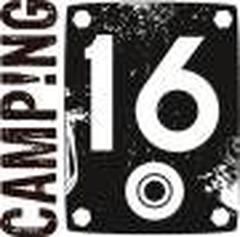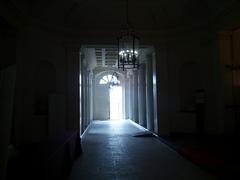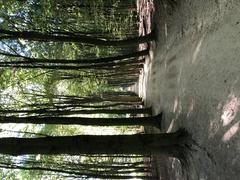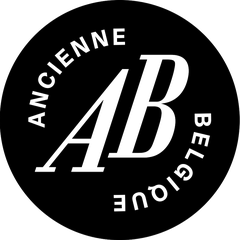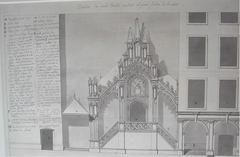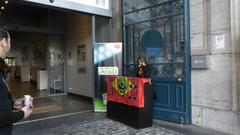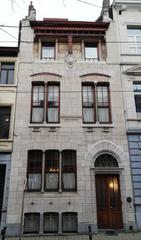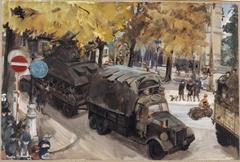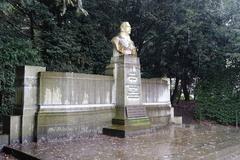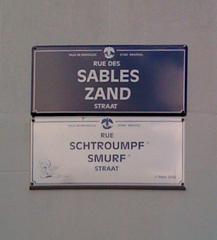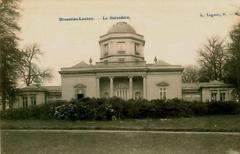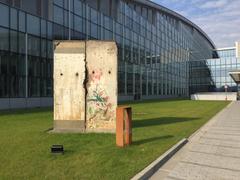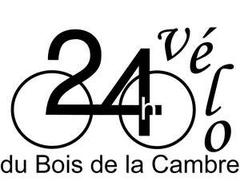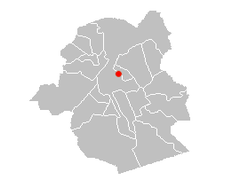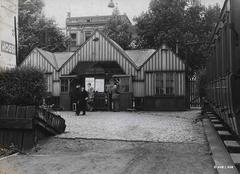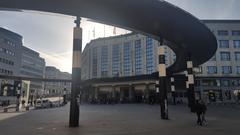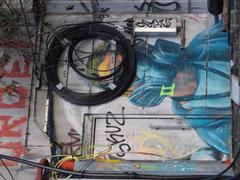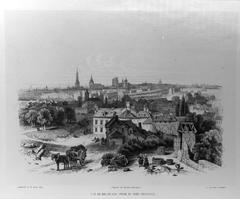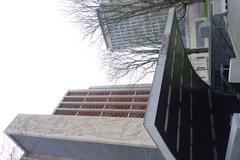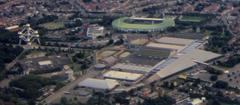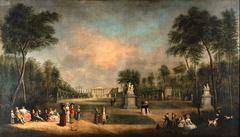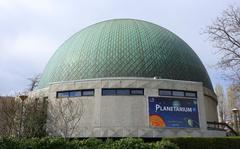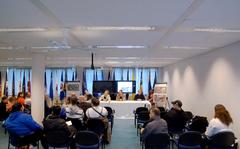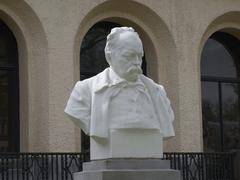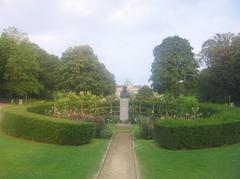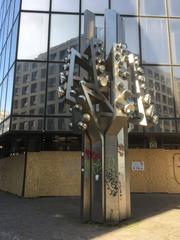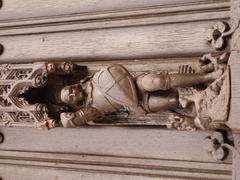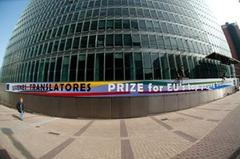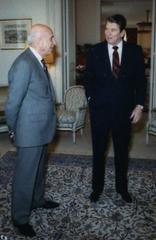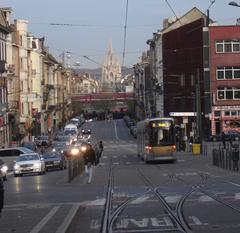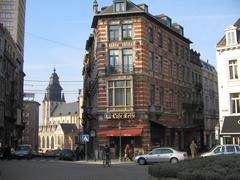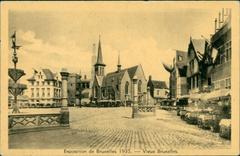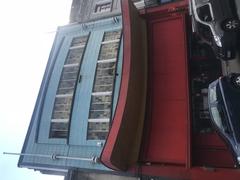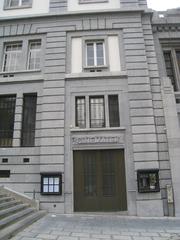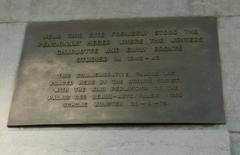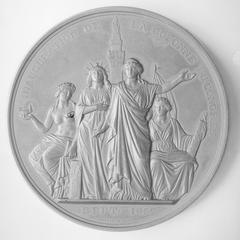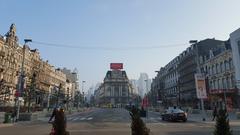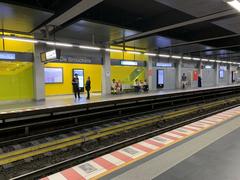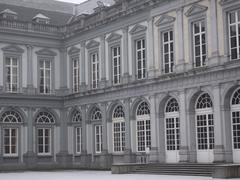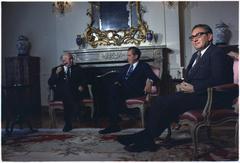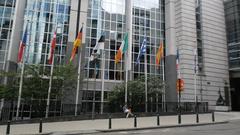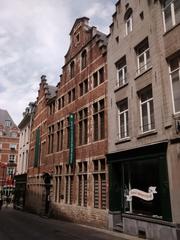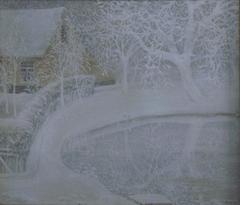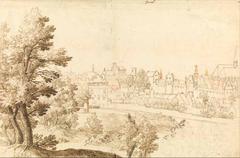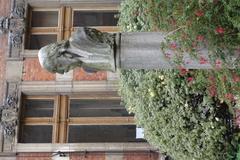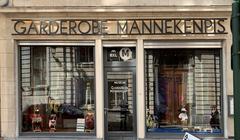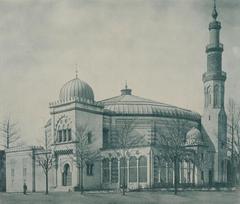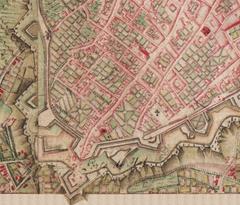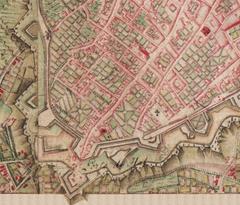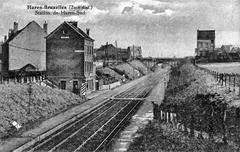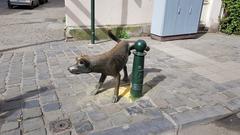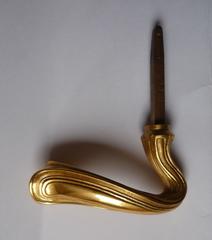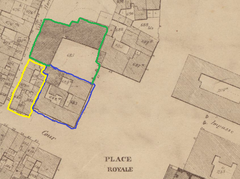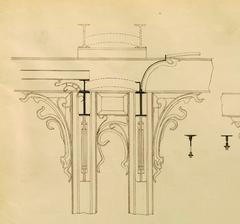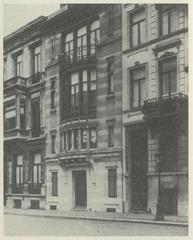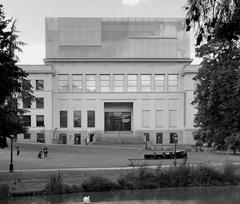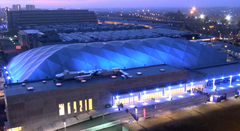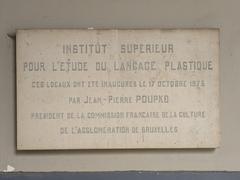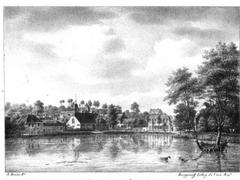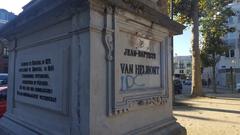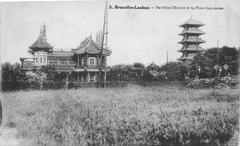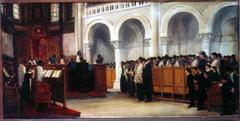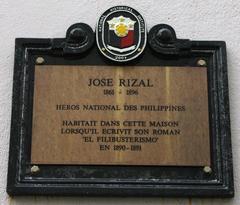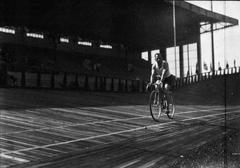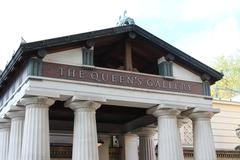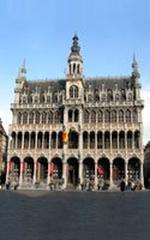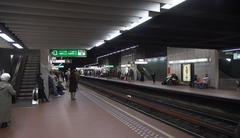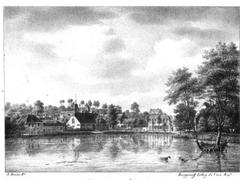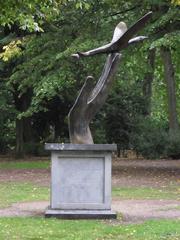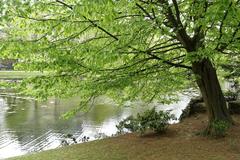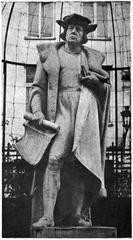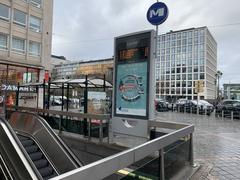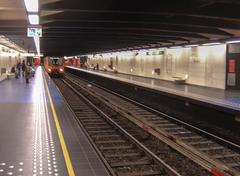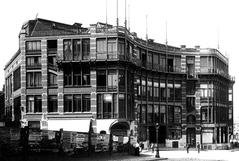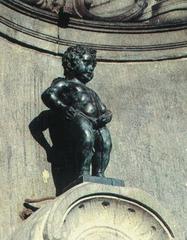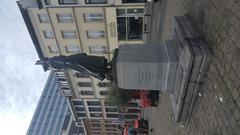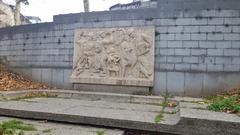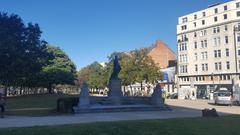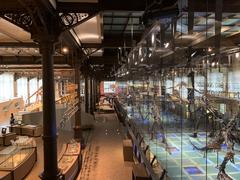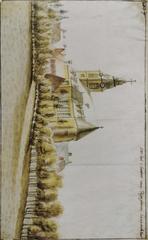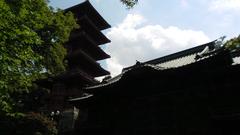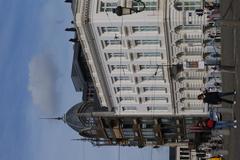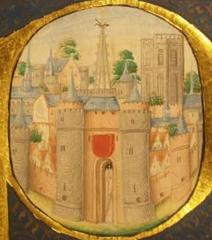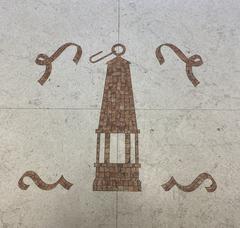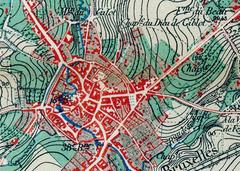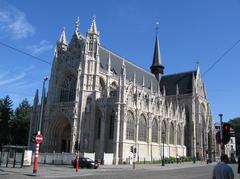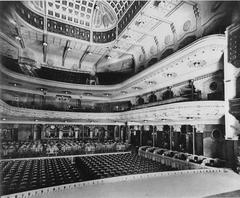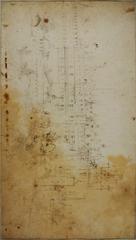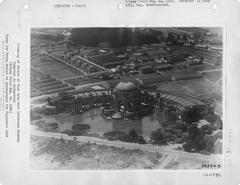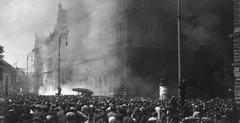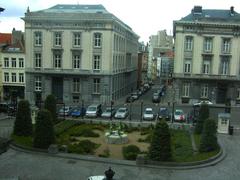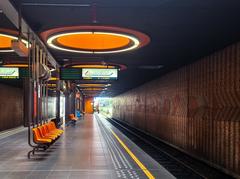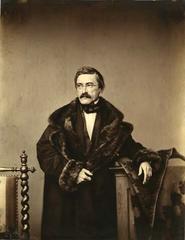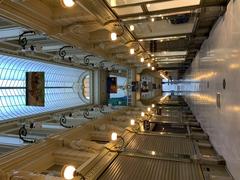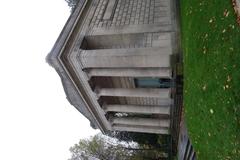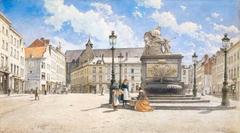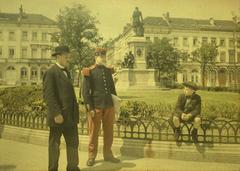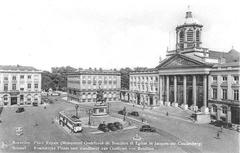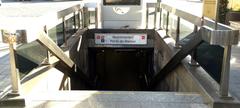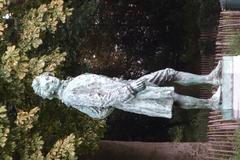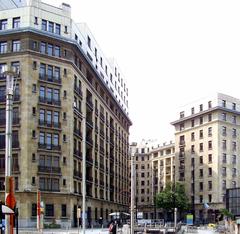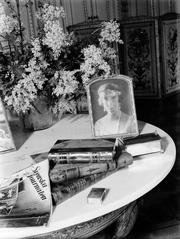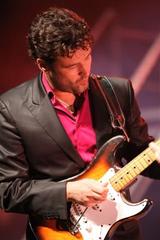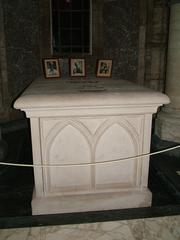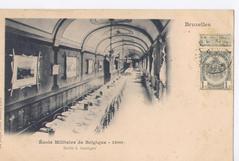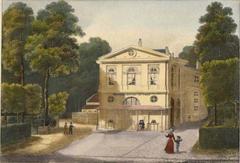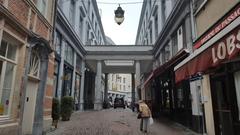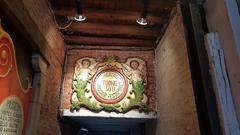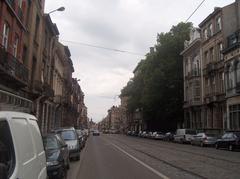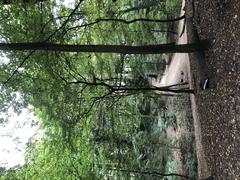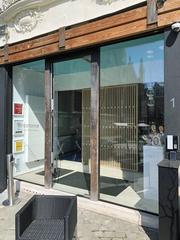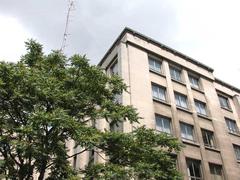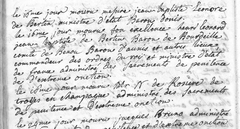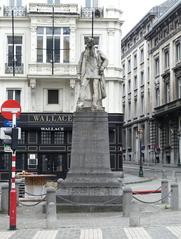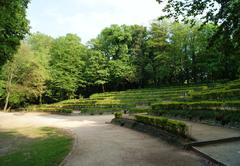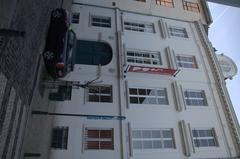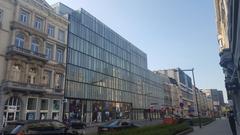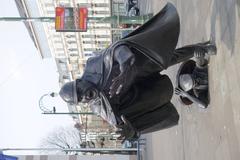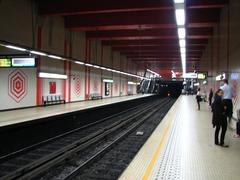
Leuven Gate: Visiting Hours, Tickets, and Historical Sites in Brussels
Date: 04/07/2025
Introduction: The Significance of Leuven Gate in Brussels
The Leuven Gate (French: Porte de Louvain; Dutch: Leuvensepoort) was once one of Brussels’ most important medieval city gates, forming a crucial link between the capital and the university city of Leuven. Built initially in the early 13th century and reconstructed with the city’s expanded second set of fortifications in the late 14th century, the Leuven Gate played a vital role in commerce, defense, and cultural exchange. Though the structure was demolished by the early 19th century due to urban modernization, its influence is still felt today in Brussels’ city layout and historical memory. This guide offers detailed historical context, practical visitor information, and tips for experiencing the legacy of the Leuven Gate and related medieval sites in Brussels (visit.brussels; art-facts.com; urban.brussels).
Table of Contents
- Introduction: The Significance of Leuven Gate in Brussels
- Historical Overview
- The Modern Site & Legacy
- Visitor Guide
- FAQs: Leuven Gate and Brussels’ Medieval Defenses
- Summary Table: Key Visitor Details
- Conclusion & Call to Action
- References
Historical Overview
Medieval Foundations and Strategic Role
The Leuven Gate was a principal gateway in Brussels’ second ring of defensive walls, constructed between 1356 and 1383. Its strategic eastern location controlled the road to Leuven—a major academic and trading center—and served both economic and military functions. The original city wall, built in the early 13th century, also included a Leuven Gate, which was integrated into the expanded second wall as Brussels grew (visit.brussels).
Construction and Architectural Evolution
The second walls enclosed Brussels with nearly 8 kilometers of fortifications, punctuated by 72 towers and seven main gates, including the Leuven Gate. This gateway was distinguished by its massive stone towers, fortified archways, and defensive elements such as portcullises and guardrooms. Over time, especially during the Renaissance, the gate acquired decorative flourishes, reflecting Brussels’ prosperity and shifting toward ceremonial use while retaining its defensive role (visit.brussels; worldcityhistory.com).
Demolition and Urban Transformation
By the late 18th century, military advances and urban growth rendered the walls obsolete. The Leuven Gate was demolished during the modernization under Emperor Joseph II and subsequent French rule. Its site was absorbed into the “Small Ring” (Petite Ceinture/Kleine Ring), a ring road that now traces the city’s former fortifications (urban.brussels).
The Modern Site & Legacy
Integration into Brussels’ Urban Fabric
Today, the area where the Leuven Gate once stood is a lively urban intersection near Boulevard de Waterloo and Avenue de la Toison d’Or. The “Small Ring” serves as a major city artery, and the gate’s memory survives in local street names, historical markers, and public art. Occasional archaeological finds during construction projects further connect residents and visitors to the city’s medieval roots (urban.brussels).
Heritage Interpretation and Commemoration
While no physical remains of the Leuven Gate exist, its story is told through interpretive panels, digital resources, and exhibitions organized by local heritage organizations. The Media Urban online library offers historical maps and images, and the Halle Gate (Porte de Hal/Hallepoort)—the last surviving city gate—serves as a museum dedicated to Brussels’ fortifications (art-facts.com; Porte de Hal official website).
Visitor Guide
Location and Accessibility
- Site: The former Leuven Gate is located along the eastern Small Ring, near Boulevard de Waterloo and Avenue de la Toison d’Or.
- Public Transport: Easily accessible by metro (Porte de Namur, Arts-Loi), tram, and bus.
- Pedestrian and Cycling Access: The area is walkable and features dedicated bike lanes; bike-sharing options are available (visit.brussels).
Visiting Hours and Tickets
- Leuven Gate Site: Open at all times; as no structure remains, there are no hours or fees.
- Halle Gate Museum: Open Tuesday–Sunday, 10:00–17:00 (closed Mondays and public holidays). Tickets cost around €5 for adults, with discounts for seniors, students, and children (Porte de Hal official website).
Guided Tours and Virtual Resources
- Walking Tours: The Leuven Gate site is featured in several self-guided and guided walking tours of Brussels’ medieval walls and city center. Bookings can be made through local operators or the Visit Brussels website.
- Virtual Resources: The Media Urban library provides digitized historical maps and virtual tours.
Nearby Attractions
- Halle Gate (Porte de Hal): Museum and the only surviving medieval city gate.
- Parc de Bruxelles (Warandepark): Central park near the former gate location (visit.brussels).
- Royal Palace: Open in summer, located at the southern end of the park.
- Grand-Place & Mont des Arts: Within a 15-minute walk, offering historical and cultural experiences.
- European Quarter: Home to EU institutions and museums, reflecting modern Brussels (realjourneytravels.com).
Events and Activities
- European Running Championships & Brussels-Leuven Marathon (April 2025): The marathon passes near the former Leuven Gate, creating a vibrant atmosphere (Brussels Morning; Statathon).
- Street Art: Explore murals and public art in the neighborhoods surrounding the Small Ring.
Practical Tips for Visitors
- Language: French and Dutch are official languages; English is widely spoken in tourist areas (happytowander.com).
- Safety: The area is generally safe; be alert for pickpockets during crowded events (happytowander.com).
- Accessibility: Wheelchair friendly, though some cobbled streets may require assistance.
- Best Time to Visit: Spring and early autumn offer pleasant weather and fewer crowds.
- Amenities: Cafés and restaurants are plentiful; public restrooms are found in parks and metro stations.
- Tourist Information: Main office at Grand-Place, about 15 minutes on foot (visit.brussels).
FAQs: Leuven Gate and Brussels’ Medieval Defenses
Q: Is the Leuven Gate still standing?
A: No, it was demolished in the late 18th century. Its historical location is marked on city maps and by street names.
Q: Are there visiting hours or tickets for the Leuven Gate?
A: The site is public and open at all times, with no tickets required.
Q: Can I visit a medieval city gate in Brussels?
A: Yes, the Halle Gate is preserved as a museum and is open to visitors.
Q: Are guided tours available?
A: Yes, several walking tours include the Leuven Gate site and related historical locations.
Q: What events take place near the Leuven Gate area?
A: The Brussels-Leuven Marathon and European Running Championships pass nearby each April.
Summary Table: Key Visitor Details
| Feature | Details |
|---|---|
| Location | Along Small Ring, near Boulevard de Waterloo & Avenue de la Toison d’Or |
| Nearest Metro | Porte de Namur, Arts-Loi, Parc |
| Accessibility | Wheelchair accessible, some cobbled streets |
| Nearby Attractions | Halle Gate Museum, Parc de Bruxelles, Royal Palace, Grand-Place, European Quarter |
| Events | Brussels-Leuven Marathon (April), year-round festivals |
| Food & Drink | Many cafés and restaurants nearby |
| Language | French, Dutch, English widely spoken |
| Tourist Info | visit.brussels |
Conclusion & Call to Action
Although the Leuven Gate itself has vanished from the landscape, its imprint on Brussels’ history remains strong. Exploring the former site and its surroundings offers a unique window into the city’s medieval past and vibrant present. To deepen your experience, visit the Halle Gate museum, take a guided walking tour, or explore the Small Ring by bike or on foot. For personalized itineraries and audio guides, download the Audiala app and consult official tourism websites. Start planning your journey into Brussels’ layered heritage today!
References
- Visit Brussels: Historic Brussels
- Urban Brussels: Urban Planning and Territories
- Art Facts: Famous Buildings in Brussels
- Wikipedia: Leuven Gate
- World City History: The Fascinating History of Brussels
- Brussels Morning: Brussels-Leuven Marathon 2025
- Porte de Hal Official Website
- Real Journey Travels: Brussels vs. Leuven
- Happy to Wander: Belgium Travel Tips
- Happy to Wander: Brussels Travel Tips
- Statathon: European Running Championships







